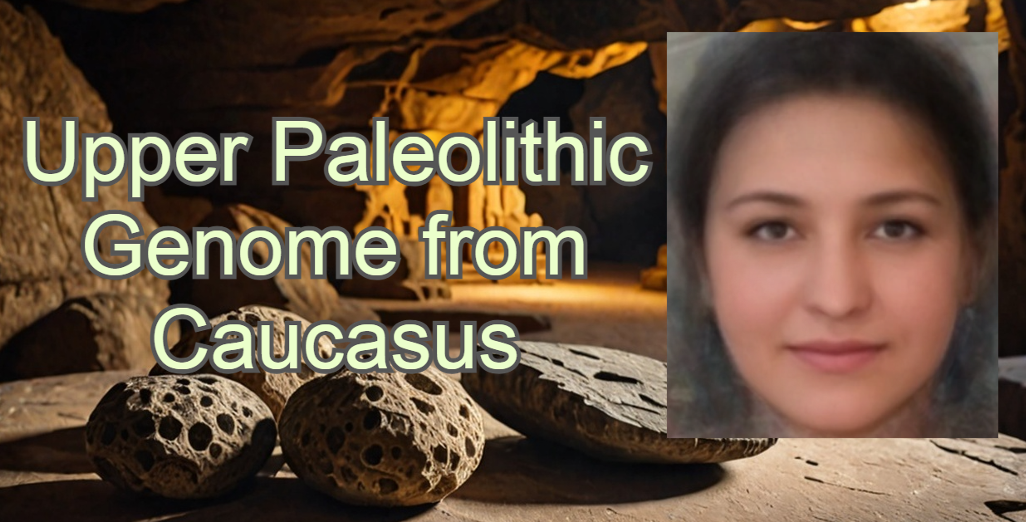
Dzudzuana Hunter Gatherer - 25kyBCE
The Dzudzuana hunter-gatherer woman, who lived approximately 26,000 years ago in what is now Georgia, provides a remarkable glimpse into the genetics of the Caucasus and West Eurasia during the Upper Paleolithic. Her DNA, extracted from ancient remains found in the Dzudzuana Cave, has revealed that the genetic legacy of Dzudzuana and her contemporaries is deeply intertwined with the genetic history of Europe and the broader region. Dzudzuana hunter gatherer carried a unique genetic signature that would later influence the gene pools of several significant populations, including the Anatolian Neolithic farmers, Caucasus Hunter Gatherers and the Natufians of the Levant. This connection highlights the importance of the Caucasus as a genetic crossroads, where ancient populations mixed and migrated, shaping the ancestry of diverse groups across West Eurasia.
The genetic legacy of Dzudzuana is particularly notable for its contributions to the ancestry of later populations in both Europe and the Near East. Her genome shares affinities with the Natufians, the first known agriculturalists in the Levant, and with the Anatolian Neolithic farmers, who played a crucial role in spreading agriculture into Europe. This suggests that the Dzudzuana woman's genetic heritage was passed down through the millennia, influencing the makeup of these foundational populations. Moreover, the presence of Dzudzuana-like ancestry in modern Europeans underscores the deep and enduring connections between the prehistoric peoples of the Caucasus and those who would later populate Europe. The study of Dzudzuana and her genetic legacy continues to shed light on the complex web of migrations and interactions that have shaped the genetic landscape of the Caucasus, West Eurasia, and beyond.
